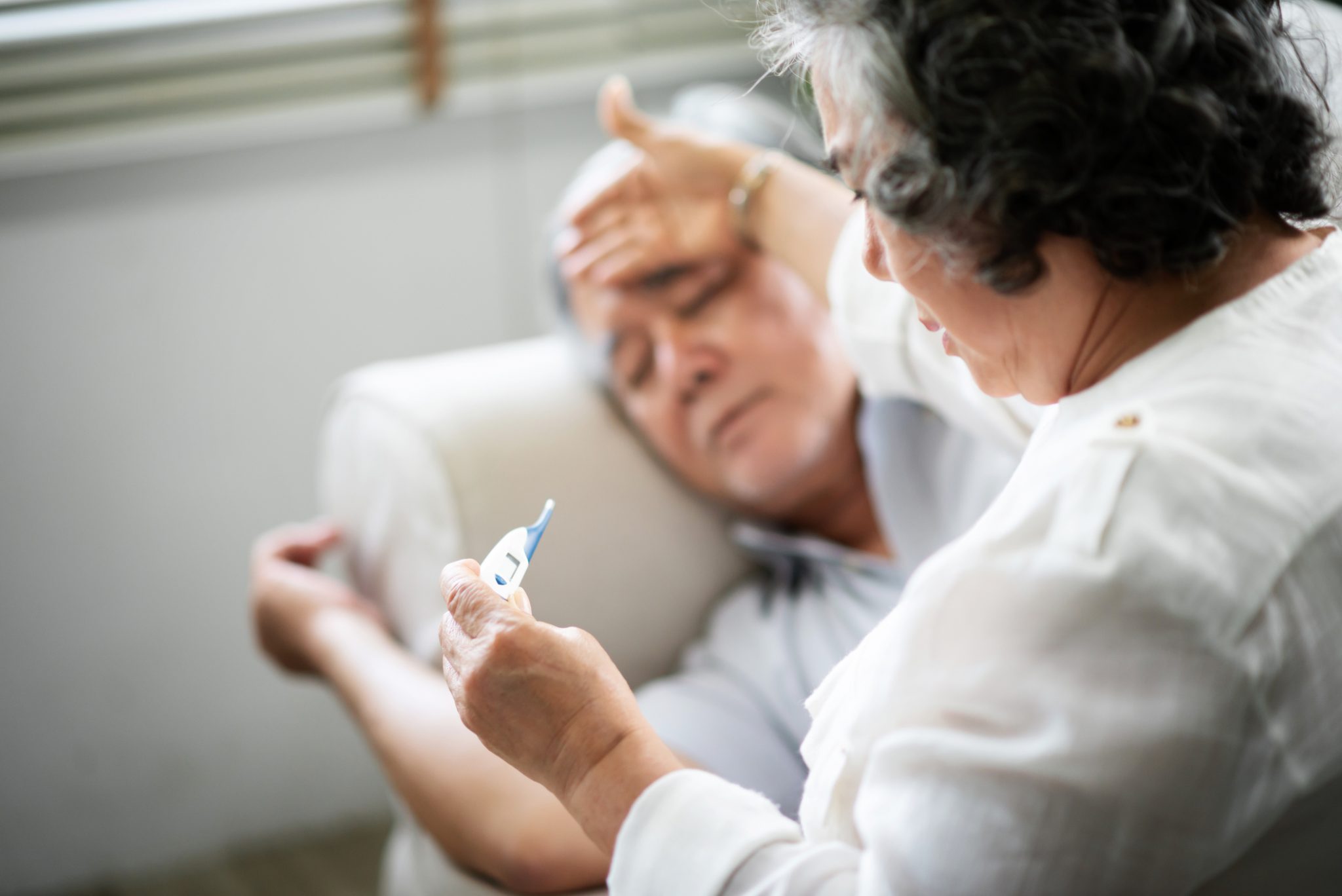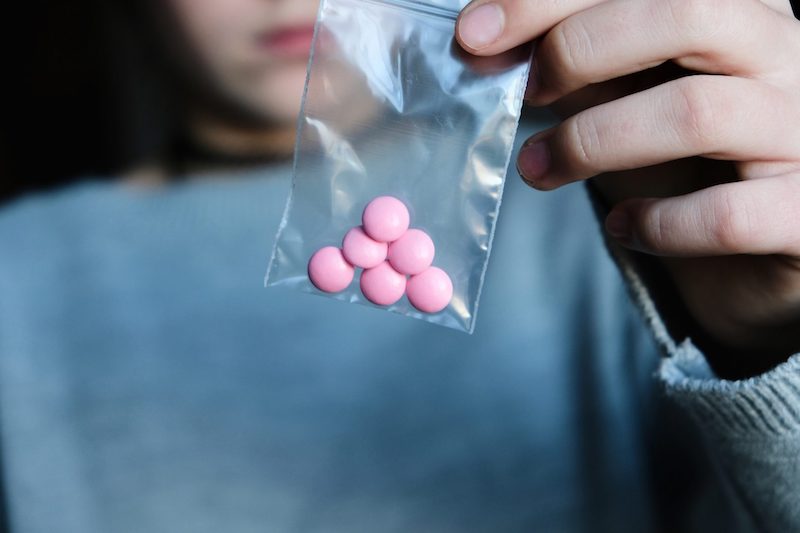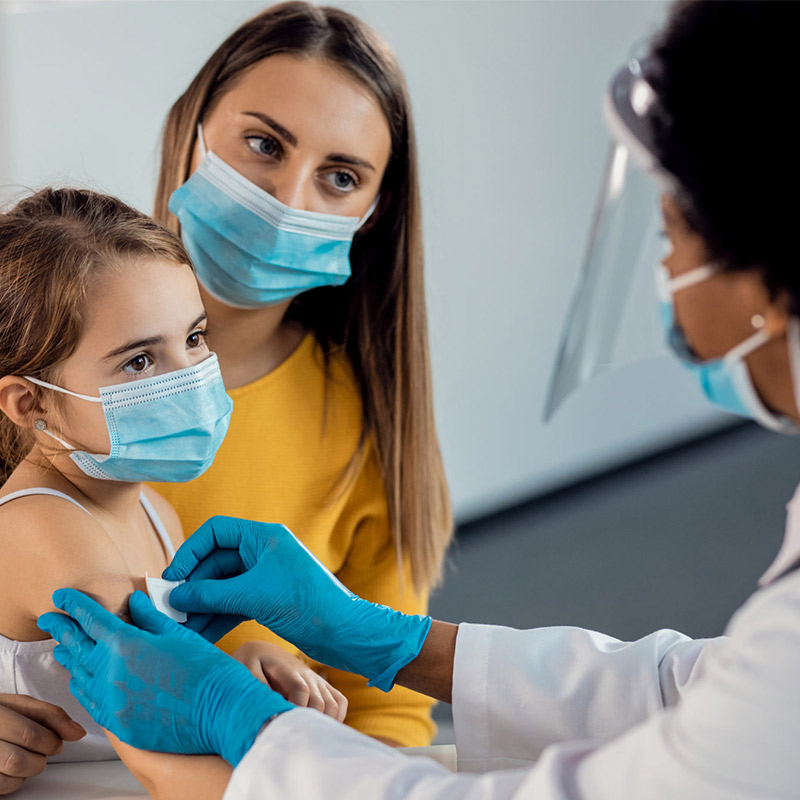Taking Kids to the Emergency Department During COVID-19 Outbreak

April 16, 2020
Updated 10/14/20
Bringing your child to the emergency department can be a nerve-racking experience, especially during the COVID-19 pandemic. You may be anxious about your child’s immediate condition, but also concerned about entering a hospital environment that is treating both suspected and confirmed coronavirus patients. As we continue to navigate through this new reality, it’s critical for parents to remember that severe symptoms should never be taken lightly, and that any delay in seeking emergency treatment can create more dangerous health situations for children and put them more at risk for severe infection.
“We’re unfortunately seeing more instances where parents are feeling hesitant to bring their children into the emergency department because of fear of contracting the virus, in turn, resulting in much more severe cases upon admission,” says Kevin Slavin, M.D., director of quality for Children’s Health at Hackensack Meridian Health. “This is because certain symptoms, such as respiratory and abdominal issues, can manifest and wreak havoc more quickly in children than adults.”
Why it’s still safe to bring your child to the hospital
Contrary to what many may think, the emergency department is still a very safe place to go, especially for children, despite the pandemic. “The traditional scene of a packed emergency department waiting room is no longer the reality at this time,” adds Dr. Slavin.
Most hospitals are following stringent infection control practices to prevent the spread of the virus between patients and employees, including:
- Implementation of universal masking policies, meaning all employees and patients must wear a mask at all times while in the hospital
- Enforcing social distancing practices (physical distancing of six feet between people), when appropriate
- Isolating all suspected and positive COVID-19 patients into private areas
- Minimizing contact through advanced triaging systems, including direct admission/transfer to the hospital and bypassing the emergency department when possible
- Limiting visitation - patients are allowed one visitor at a time, unless the patient is a minor (both parents or guardians are permitted). Exceptions will be made in special circumstances.
- Following thorough protocols for regular cleaning and sanitizing of all surfaces and rooms, including UV light treatment, and adding an extra step of sanitation between patient encounters
- Hackensack Meridian Health hospitals are testing all admitted patients for COVID-19, including patients admitted from the emergency department as an inpatient or observation case
When to bring your child in
“Anything that would have prompted you to bring your child to the emergency department in the past should warrant a visit,” Dr. Slavin adds. “If your child has an emergency, try not to be distracted by the pandemic occurring and help them get the treatment they need quickly.”
Symptoms that need immediate evaluation include but are not limited to:
- Fever of 100.4°F or higher in newborns 8 weeks of age or younger (fever in children older than 8 weeks may not need to be evaluated in an emergency department; your child’s pediatrician can help with decisions about seeking emergency evaluation)
- Strange or more withdrawn and less alert behavior
- Unconsciousness or no response when you talk with your child
- Rhythmic jerking (a seizure)
- Increasing effort or trouble with breathing
- Skin or lips that look blue, purple, or gray
- Neck stiffness with fever
- Increasing or severe persistent pain
- Persistent vomiting
- A cut that is large, deep, or to the head, chest, or abdomen
- Bleeding that does not stop after applying pressure for 5 minutes
- A burn that is large or involves the hands, feet, groin, chest, or face
- Any loss of consciousness, ongoing or worsening confusion, headache, or vomiting after a head injury
- Concern that your child is a risk to his- or herself or others
Emergency care may also be needed after sudden injuries that may be caused by any of the following events:
- Bicycle or car crashes
- Falls
- Burns or smoke inhalation
- Choking
- Drowning
- Firearms or other weapons
- Electric shocks
- Poisoning**
**American Academy of Pediatrics. “When your child needs emergency medical services.”
What to expect and how to prepare your child
If you think you need to bring your child to the emergency department, follow these steps:
- Call your pediatrician first to assess the situation. Your pediatrician can call ahead to alert the emergency department of your arrival.
- Prepare your child by letting know what to expect. The emergency departments staff will be wearing masks and potentially additional protective layers of protection (gowns, face shields, goggles, gloves). You and your child will also need to wear a mask while in the hospital. You can bring your own or we’re happy to supply one.
- Prepare your child that they will need to wear a mask as well
- It is okay to give your child over-the counter fever and pain medicines before coming to the emergency department. Take note of the time and the dose, as the emergency department will ask for this information.
- Avoid bringing other children who don’t require medical care along with your sick child
- Bring your child’s current list of medication and any information about their medical history
- Consider bringing a comfort item: a favorite toy, stuffed animal or book can go a long way to keeping your child calm and distracted in an unfamiliar setting.
Accessing care while experiencing COVID-19 symptoms
In the unique event that you or your child are experiencing COVID-19-related symptoms and you need to bring your child to the hospital for emergency care, health care professionals want you to know that you will not be separated from your child, as long as they are under the age of 18.
“As we see an increasing prevalence of COVID-19 positive patients, we must anticipate different scenarios occurring, such as a parent with symptoms having the need to bring their child for emergency care,” Dr. Eigen adds. “While we would recommend that any sick parent make arrangements for another trusted adult to bring their child in, we understand that is not always an option. If this is the case, it’s even more important to contact your emergency department before arrival to allow them to take extra care to decrease the possibility of accidental exposure to others during your visit.”
Next Steps & Resources:
- Need a doctor? Visit our website to find one near you or call 800-822-8905.
- Read Danielle's Story and Laurajean's Story About Taking Their Kids to the ER During COVID
The material provided through HealthU is intended to be used as general information only and should not replace the advice of your physician. Always consult your physician for individual care.
How to Take Care of a Loved One with Coronavirus

If one of your loved ones is diagnosed with Coronavirus, there are certain measures you should take to help them get healthy while protecting yourself from getting sick.
Dealing with Child Boredom without Relying on Screen Time

For parents concerned about leaning on TV and tablets too much while kids are at home, here are some healthy alternatives to help keep the little ones entertained.

Behind the ‘Benadryl Challenge’ and Why It’s Harmful
The “Benadryl Challenge” has been made popular on TikTok. Our pediatric emergency specialist weighs in on what it is, and the associated risks.

COVID Vaccine and Children: What to Know
Here's everything parents need to know about the COVID vaccine.

Can Melatonin Help Kids Sleep?
When your child has trouble falling asleep, are kid-friendly melatonin gummies a safe option? Pediatrician sleep specialists weigh in.

Flu or COVID-19? How to Tell the Difference in Kids
Flu season is ramping up, and your child begins to develop a runny nose or fever. A year ago that might not have caused too much concern – but now that first symptom may trigger fear that he or ...